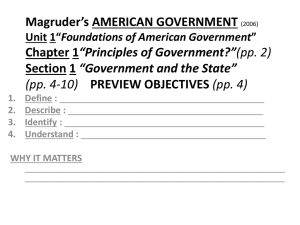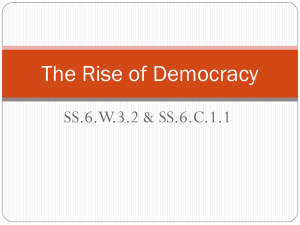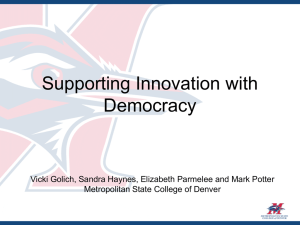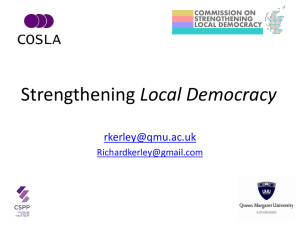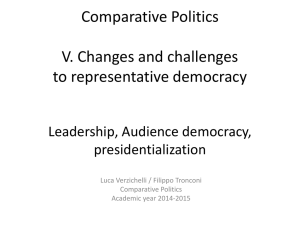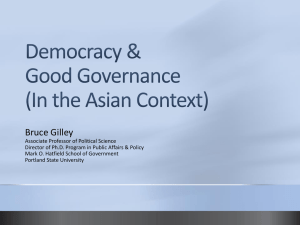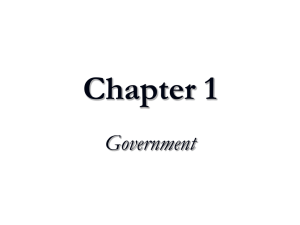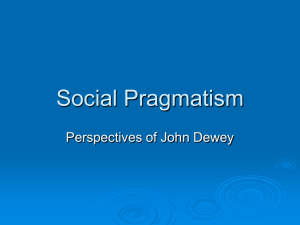What do we mean by democracy?
advertisement
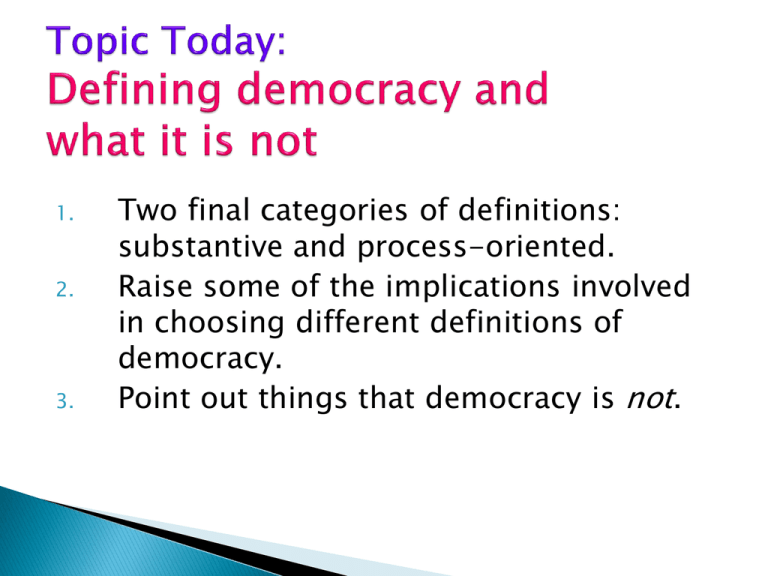
1. 2. 3. Two final categories of definitions: substantive and process-oriented. Raise some of the implications involved in choosing different definitions of democracy. Point out things that democracy is not. More maximalist in nature. Demand that democratic regime must succeed in providing outcomes that promote equality among citizens. Frequently democracy must extend beyond formal politics to society and economy. Anne Phillips (feminist): outcomes should allow all women to have equal chance with men at participating. • Social and economic inequalities prevent. • Actual participation most important measure of democracy. Charles Tilly: such approaches “identify some minimum set of processes that must be continuously in motion for a situation to qualify as democratic”. •Tilly: regime is “democratic to the degree that political relations between the state and its citizens feature broad, equal, protected, and mutually binding consultation.” •Democracy inheres in the processes going on in relations between the state and citizens. •Participatory democracy or deliberative democracy. •e.g. Benjamin Barber: “strong democracy in the participatory mode.” On one hand, want to choose a definition that is analytically useful. ◦ Points towards more minimalist definitions. On other hand, want to choose definition that remains true to principles of democracy. ◦ Points towards more demanding definitions. ◦ But analytical drawbacks to maximalist substantive definitions, and are they attainable? Dichotomous = 2 values or categories Continuous = a spectrum of infinite measures, not separated into distinct categories 1. 2. Not necessarily capitalism or economic freedoms. Not necessarily more orderly, stable, or consensual than nondemocracy. Democracy depends on minimal coercion and maximum consent. Results in three constant paradoxes re: stability: 1. Conflict vs. consensus. There must be disagreements and opposition in order to allow competition…Yet not too much disagreement! 2. Representativeness vs. governability. Governments must be responsive to constituencies, yet must be able to govern effectively. 3. Consent vs. effectiveness. • • • • Democracy requires consent. Consent based on legitimacy. Legitimacy based on effectiveness. Effectiveness requires unpopular decisions.
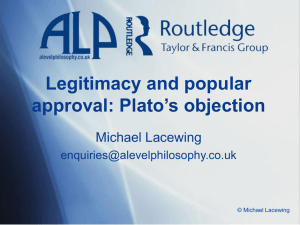


![“The Progress of invention is really a threat [to monarchy]. Whenever](http://s2.studylib.net/store/data/005328855_1-dcf2226918c1b7efad661cb19485529d-300x300.png)



